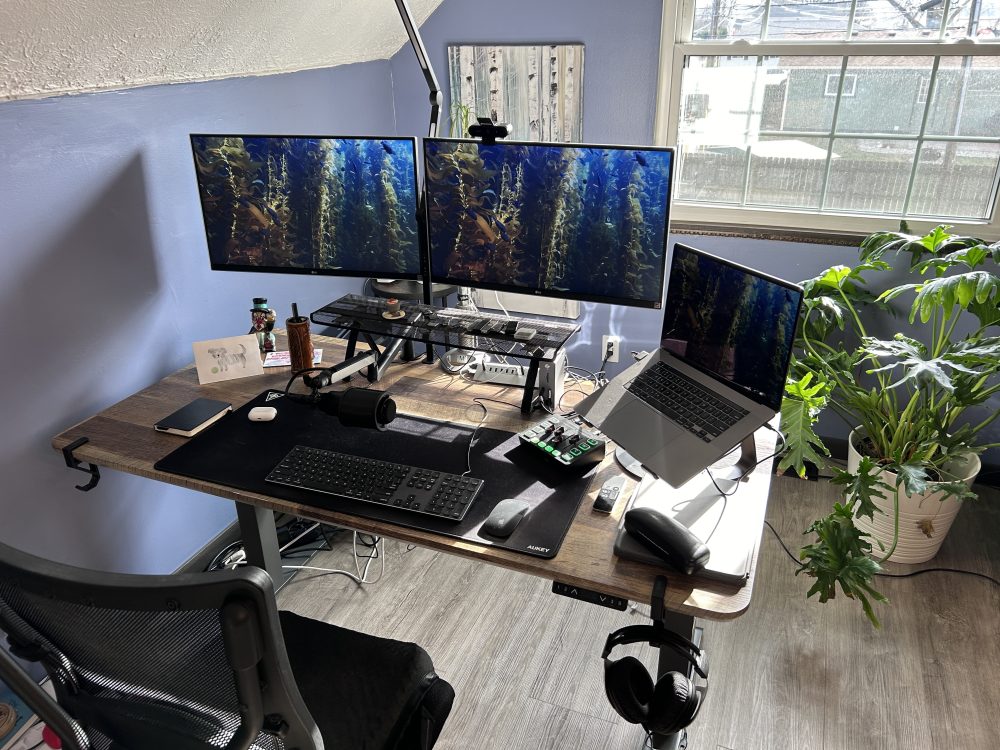Memo to Bill Gates
It’s time, Bill, to commit to the common good by fighting those who would lock the Internet door shut
DEAR BILL,
I know you’re a busy man — probably the world’s busiest man — but I need your help. And not the help Word offered me when I typed the above salutation, either. “It looks like you’re writing a letter,” the paper clip announced. “Would you like help?” it continued. “Get help with writing the letter,” it suggested redundantly. “Just type the letter without help,” it offered unhelpfully.
No, I’m looking for some help in your role as Chief Software Architect. I need your word that you will do everything within your power to protect the freedom of the Internet from the attack of special interest groups, most notably the Hollywood studios and media companies.
As chief software architect of the dominant desktop and browser technologies, you have captured and retained a hold on the Last Foot, the connection between our eyes and ears and the Net. I’m not here to question your motives or tactics — that’s for the courts or another time — but to understand your plans for maintaining free access to the key Web and peer service protocols.
You have already taken significant steps in uncorking the broadband bottleneck. First you invested in Comcast and AT&T to kick-start cable modem/DSL competition. Then you embedded 802.11 wireless support in Windows XP and Pocket PC OSes. You continue to improve and bundle videoconferencing and instant messaging software, and have added multimedia production tools.
And then there’s Internet Explorer, the de facto front end for the Internet operating system. Let’s not kid ourselves, you’re already there. The incredible, virtuous circle of Wi-Fi, Weblogs, and Web services has real-time knowledge engineering sewn up. Bill, you need to be unmasked as the thought leader you are. Come out of hiding and promise that Internet Explorer will remain open and free, and embed the peer protocols now as part of the bargain.
Your competitors won’t do it. Sun’s Greg Papadapoulous showed us a compelling road map where JXTA’s peer services loomed large. But he demurred about JXTA’s powerful dynamic pipes technology, which could be used to open rich channels directly between peers, saying that concerns about intellectual property rights made that unlikely.
You, on the other hand, have invested $51 million in Groove’s XML synchronization and routing technology, and countless millions more in Mark Lucovsky’s HailStorm services. Forget about the next Office. You can combine HailStorm, Groove services, and Internet Explorer today to create a self-replicating peer service that gathers private, shared data from e-mail, Weblog postings, and automated agents.
I know I’m preaching to the choir, Bill. You laid all this out at Forum 2000 two years ago when you painted the vision of .Net. Now the network effect of having these technologies in the bitstream is beginning to take hold. Take a look at this URL, Bill — it’s a real eye-opener: .
Click on it and it may still take you to a Reuters story about an apparent breakthrough agreement on a copy protection scheme between Hollywood and some consumer manufacturers. But the URL is more interesting than the story, which was contradicted the next day by a New York Times story indicating wide dissent.
Note the partner=USERLAND part of the address. What you’re looking at is a Web service alliance between the New York Times (which subscribes to the Reuters wire feed) and Dave Winer’s Userland Software, creators of the Radio Userland Weblog editing tool.
Radio users can subscribe to the channel and receive a stream of stories wholly independent of both the print and Web versions of the newspaper.
What’s emerging is a powerful blend of content and programming such as the one envisioned by the HailStorm architecture.
It’s time for the help, Bill. We need your promise to keep these channels open, both in Internet Explorer and the next version of Office. Will you promise to maintain Internet Explorer as an open conduit for Web and peer service protocol standards, so that independent developers can be assured of interoperability? Will you deliver a version of Word with a true open XML format, not the toy XML island interface that keeps Word documents locked up and unavailable for editing in a browser context?
And here’s the toughest one of all: Will you promise not to endorse any intellectual property protection scheme that forces users to “protect” their personal creative works and personal usage? Give the copyright owners what they need: a reasonable protection mechanism similar to the one you used so effectively to protect your software products.
But create a Peer Services license that allows artists to create works of art or information that can be duplicated without restrictions, and support a protocol and file format for each media requiring it that will allow unimpeded use on networks. In practical terms, this would allow filmmakers and musicians to transmit their ideas and creative works as “work product” in the clear, while allowing the final release version to be marketed under an agreed-upon format that protects copyright.
The carrot here is that you have already attained an unassailable market position for the OS, the browser, and Office. What you need is access to the peer protocols to produce rich containers for this next wave of Net-aware applications, and you will regain the army of consumers and thought leaders by fully opening the Office protocols.
If not, then here’s the stick: Andy Grove will do it for you, in silicon. It’s not the Last Foot, but the first bit.




